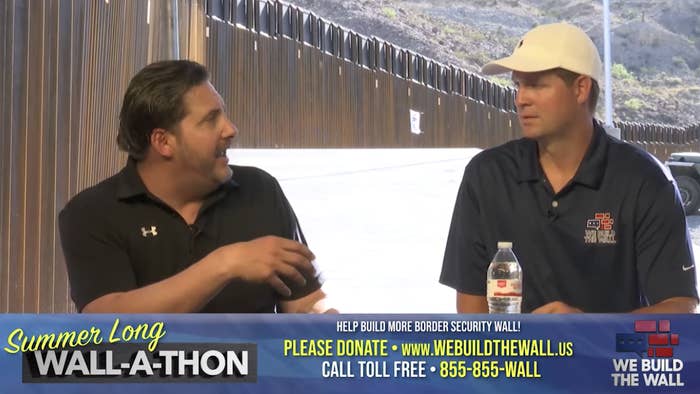
We Build the Wall, the nonprofit group trying to build a wall along the US–Mexico border and whose founder is now facing fraud charges, agreed to pay more than $8 million for a crowdfunded project in Texas, but only ended up paying a fraction of what was promised.
The owner of Fisher Sand & Gravel, a North Dakota–based construction firm, told BuzzFeed News his company only received $1.5 million before We Build the Wall suddenly pulled back in January, two months after work had started.
"They just said they didn't come up with the money or whatever," Tommy Fisher said. "We haven't had anything to do with them since January."
Last week, federal prosecutors unveiled a criminal indictment against We Build the Wall founder Brian Kolfage and Steve Bannon, former White House adviser and member of the nonprofit's board, alleging they used money donated to build a privately owned border wall to enrich themselves and pay for travel, vehicles, a boat, and credit card payments.
Despite claims that he wasn't going to take a salary for his work, federal prosecutors allege Kolfage reached a secret agreement to be paid $100,000 upfront and then $20,000 a month, as well as payments that were passed from We Build the Wall to third parties.
Kolfage has called the charges an attack "for supporting President Trumps number one initiative of securing our borders."
"I've never stolen a thing in my life," he said on Facebook.
Kolfage confirmed that We Build the Wall pulled back financial support for the wall in Mission, Texas, and stopped "investing" after lawsuits were filed against the project.
"We decided not to invest any more into that project because it was too risky to tie up our funds in a project that could be litigated long-term," Kolfage told BuzzFeed News. "We backed out soon after the legal issues came up in Texas."
Kolfage added that the board of directors made the decision to no longer pay for the project, but declined to provide any documentation regarding when they met to discuss the issue or vote to cut funding.
Kolfage raised more than $25 million to build a border wall based on a viral — and controversial — GoFundMe campaign, then created We Build the Wall as a nonprofit, new venue for the money and set the plan in motion. The group began to work with Fisher Sand & Gravel in mid-2019, and a half-mile wall was constructed in Sunland Park, New Mexico.
The project, believed to have cost $6 million, immediately drew national attention and faced hurdles after city officials said We Build the Wall had started construction without obtaining the proper permits.
Then in November, We Build the Wall began to advertise a second project, this time in Mission, Texas, where the wall was expected to be built just feet from the Rio Grande and the US–Mexico border.
Kolfage also confirmed his group had cut ties with Fisher Sand & Gravel.
"We stopped working with them for good since we were a lightning rod," he said. "It's not good for someone trying to win government contracts to have the attention we bring all over them."
Since working on the private project, Fisher Sand & Gravel has won a $400 million contract with the US Army Corps of Engineers to design and build border infrastructure in Yuma, Arizona. The Department of Defense Office of Inspector General, however, is investigating to determine if the agreement was subject to "inappropriate influence."
Earlier this month, the company also announced it had won a $289.5 million contract to build 17 miles of wall for the Border Patrol's Laredo Sector. Because of those contracts, Kolfage said the decision was "mutual by both sides to part ways."
But Fisher told BuzzFeed News the two had split because of We Build the Wall's decision to stop paying for the project in January despite having originally agreed to foot 20% of the costs, leaving Fisher to cover the bill for construction, maintenance, lawsuits, and repairs.
The split is a stark departure of what looked like, at least to the public, a partnership between the crowdfunding group and the construction company.
In July 2019, Fisher appeared alongside Bannon and Kolfage for a "Summer Wall-a-thon" that was streamed online to raise more money for future We Build the Wall projects.
Even after the parties went their separate ways, We Build the Wall has continued to present the 3.5-mile barrier in Texas as one of its own. On its website, the group continues to refer to the wall as its "Project 2," despite having contributed only 3% of the cost.
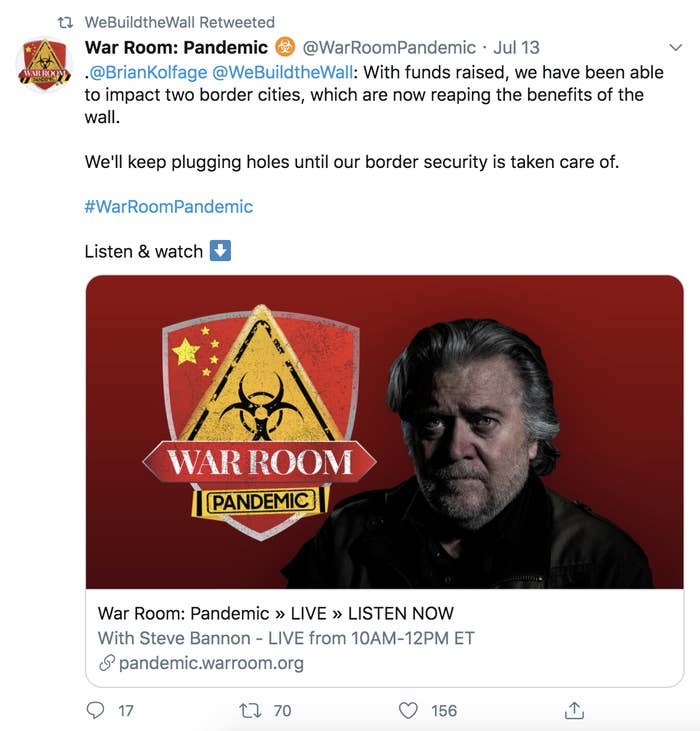
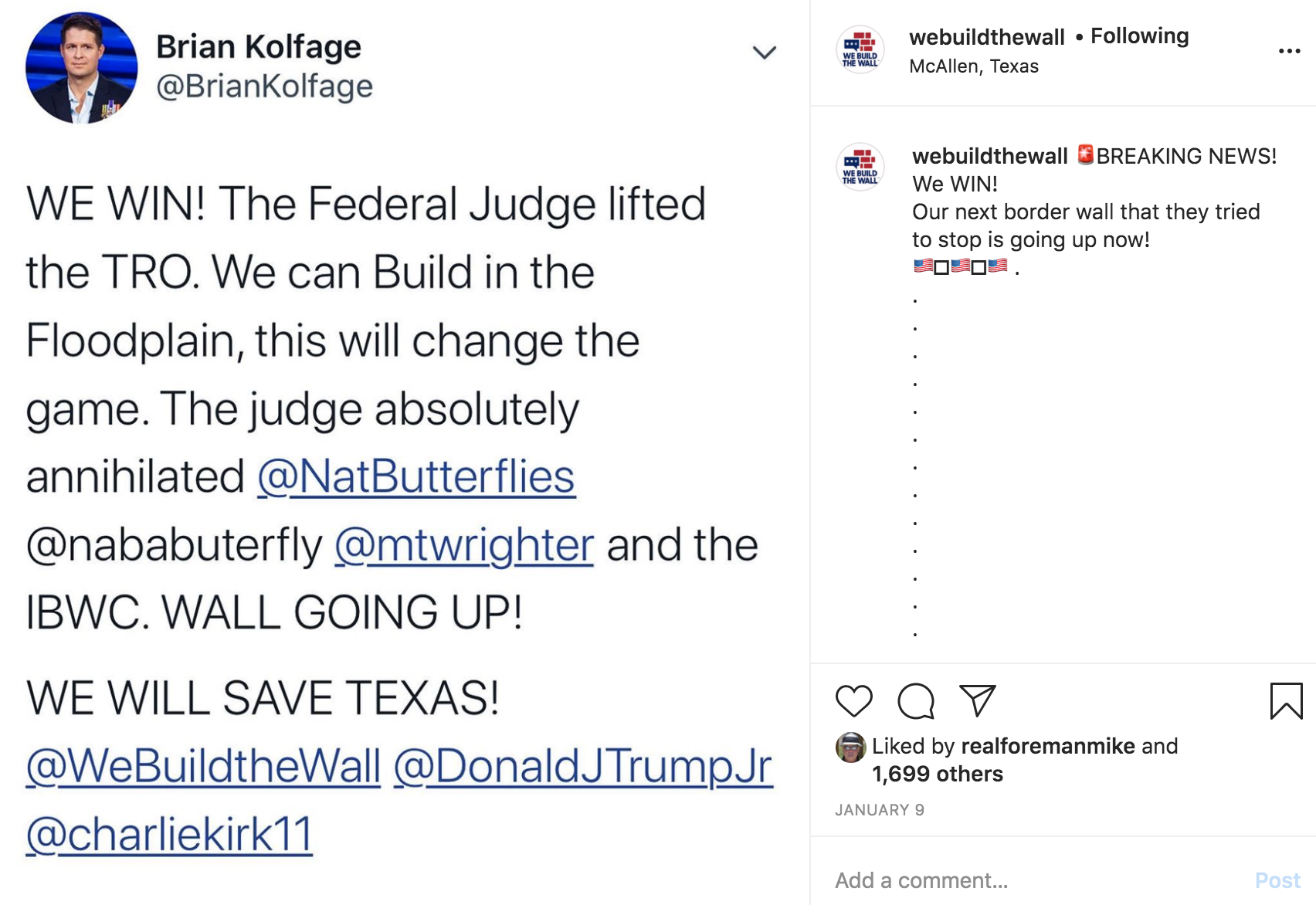
Bannon said on his podcast, War Room, that We Build the Wall had "been able to impact two border cities, which are now reaping the benefits of the border wall."
We Build the Wall also claimed on social media that the lawsuits were a challenge to the group, although the organization is only named as a defendant in one. And when a temporary restraining order against construction was lifted, Kolfage claimed it as a personal victory on Twitter.
On Instagram, a hard-hat-wearing representative for We Build the Wall known only as "Foreman Mike" also called it "Kolfage Project 2."
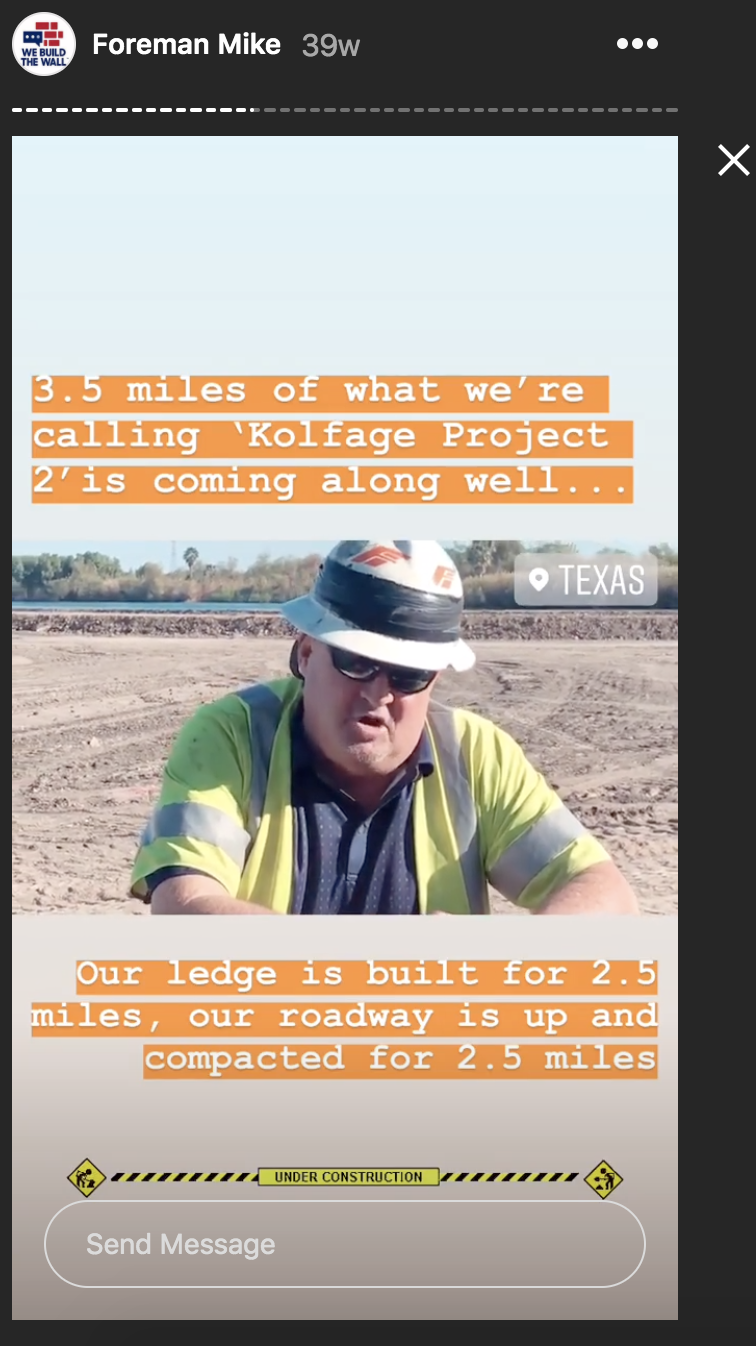
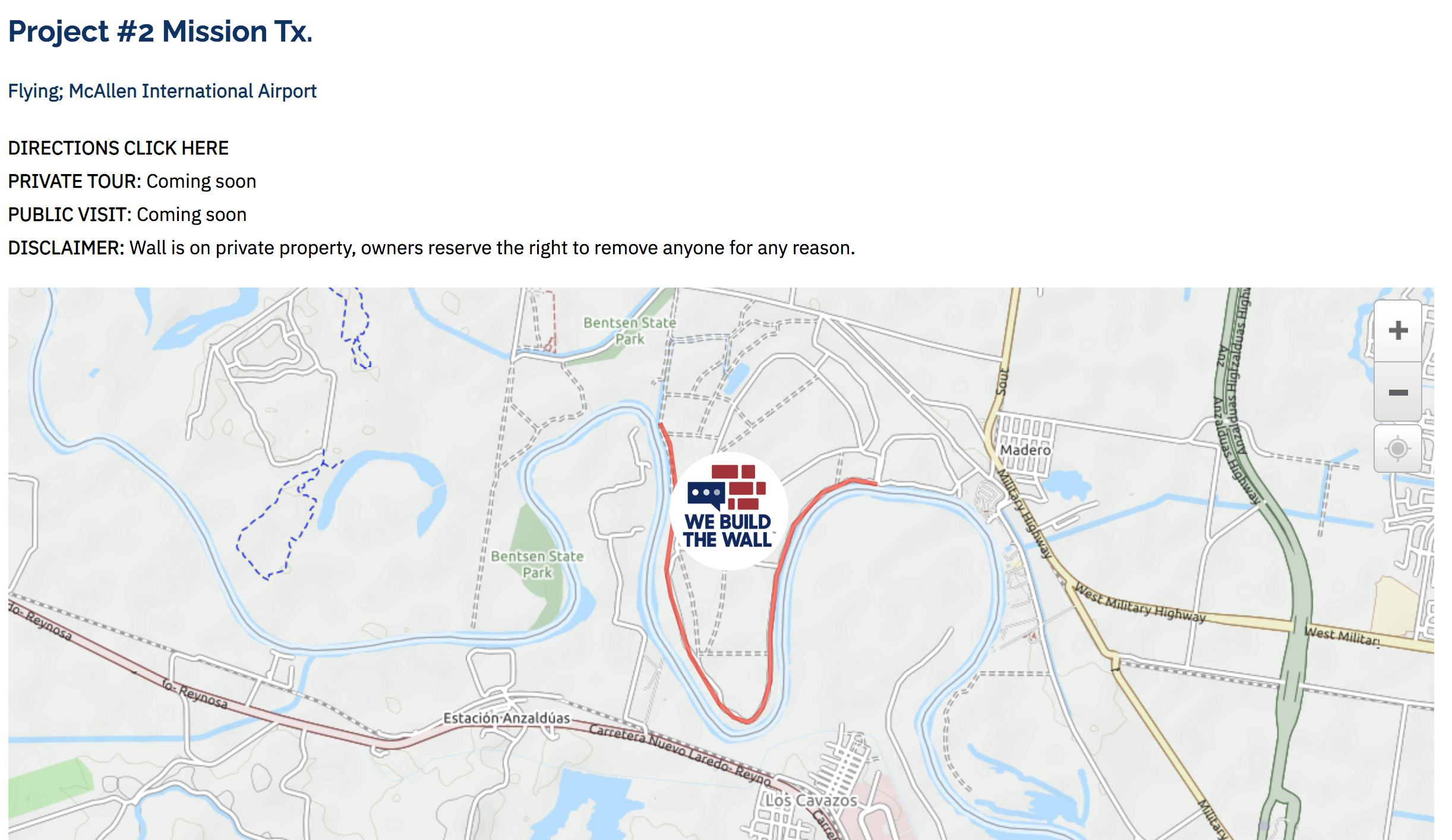
On its website, the group has also teased the possibility of private tours of the barrier, a service it charges $20 for at its Sunland, New Mexico, project.
Fisher told BuzzFeed News he has asked We Build the Wall and Kolfage to stop using the Mission, Texas, wall as a promotional tool.
Both Fisher and Kolfage told BuzzFeed News that despite the multimillion-dollar project and the national attention it was sure to bring, We Build the Wall and Fisher Sand & Gravel never entered into a written contract or agreement for either of the two wall projects.
"No, it was just verbal, so I finished the project," Fisher said.
For Fisher, the project has served as an example to point to as the company bids on government contracts.
"You gain the experience and then down the way, you give the government possibly a different option," he said. "It's no different than building a concept car."
But for now, Fisher has found his company as the owner of the wall and has not yet decided what to do with the property, which has already required repairs after a hurricane tore through the region.
